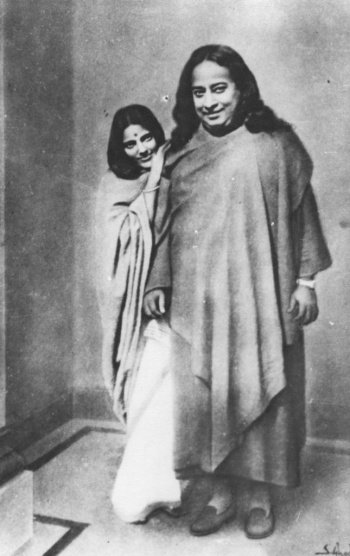“This above all: to thine own self be true,
And it must follow, as the night the day,
Thou canst not then be false to any man.”
This well-known phrase from Act I of Shakespeare’s Hamlet is spoken by the king’s minister, Polonius, as part of a blessing and advice to his son departing for university. But what does it mean to be true to one’s own self? And how does one go about it?
Paramhansa Yogananda aligned his mission and life’s work with the term “Self-Realization.” This is the highest expression of the word “self,” used to denote the oneness of the individual soul-self with the infinite Divine Self. Yoga philosophy and practice provide us with an experiential framework to test Self-Realization—both scientifically and spiritually. Those who know, know: this is the only purpose of life. Yogananda described it this way:
“Self-realization is the knowing in all parts of body, mind, and soul that you are now in possession of the kingdom of God; that you do not have to pray that it come to you; that God’s omnipresence is your omnipresence; and that all that you need to do is improve your knowing.”
Improving one’s knowing is a mystical, challenging journey that pays rich spiritual dividends. Practically speaking, daily meditation is the indisputable foundation of this journey—but more is needed. Let’s consider three essential keys to deepening our knowing of the divine Self:
Remembering the Self
Everyone in the world is suffering from a profound case of spiritual memory loss. A pathologist might treat memory loss with cognitive training and lifestyle changes. Devotees, by contrast, use japa, chanting, affirmation, and other yoga practices to reawaken the divine memory latent in the soul. Yogananda advised:
“Dwell always in the Self. Come down a little bit when you have to—to eat, or talk, or do your work; then withdraw into the Self again.”
Loving the Self
God is Love and must be sought through love, the most powerful force in creation. Swami Kriyananda explained that love and kindness are Satcitananda (ever-existing, ever-conscious, ever-new bliss) in motion. As we expand our sense of self, our actions and relationships will increasingly reflect divine love—through deep respect, compassion, and kindness toward God in all beings, everywhere.
Serving the Self
Life is full of unavoidable activity. Sri Yukteswar taught that all who live in this world are obligated to “render grateful service.” When we combine our service to others with our loving remembrance of God, it is we ourselves who receive the greatest blessing. As Yogananda said:
“Never neglect to do what you can for yourself in the form of others.”
This world is complex and chaotic. Our own consciousness—our self—is the only thing we truly have agency over. Life will bring joys and sorrows, heartbreak and deep love. In the birth of a child, in the loss of a loved one, in the pain and suffering of others, the one Self remains. To quote the great saint Anandamayee Ma:
“…Though the dance of creation changes around me in the hall of eternity, I shall be the same.”

By remembering, loving and serving God always, it must follow, as the day the night, that we will know our own true Self.
